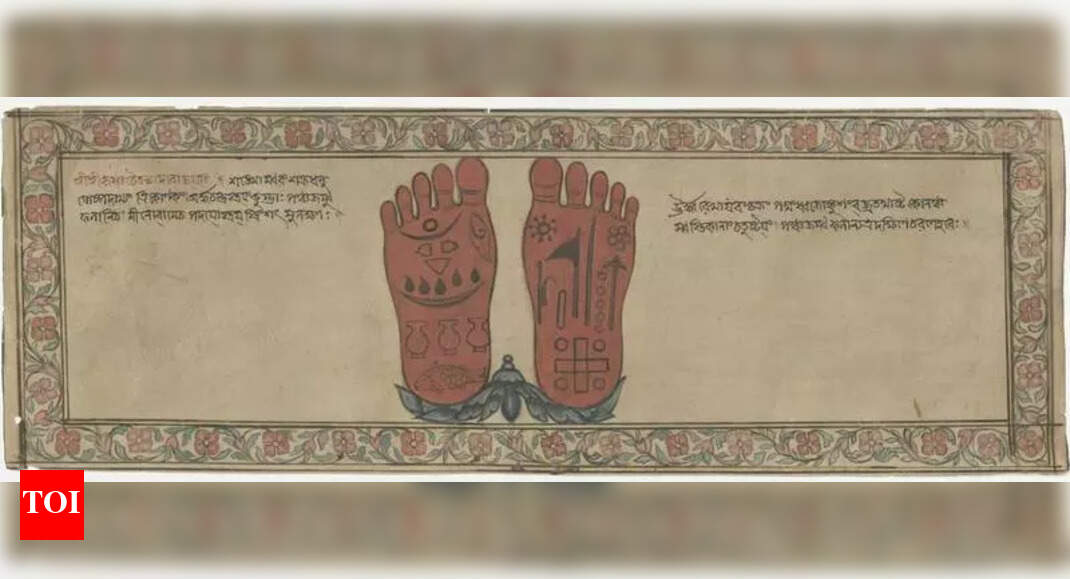Science
Asiatic Society Leverages AI to Unlock Ancient Manuscripts

The Asiatic Society in Kolkata is advancing its mission to decode ancient wisdom by employing artificial intelligence (AI) and machine learning (ML). This initiative, announced on March 15, 2024, aims to digitise, transcribe, and translate thousands of manuscripts written in ancient and codified scripts. In partnership with reputable institutions like IIT Kharagpur, IIT Delhi, and the Centre for Development of Advanced Computing (CDAC), the Society is set to make this extensive collection accessible to a broader audience, including scholars, researchers, and the general public.
At a stakeholders’ meeting held recently, Lt Col Anant Sinha, administrator of the Asiatic Society, outlined the project’s framework. “CDAC is working on the transcription of ancient texts, while hyperspectral cameras will help recover images from damaged or faded manuscripts,” he explained. The collaborative efforts with the IIT teams focus on developing algorithms for script recognition and translation, which are crucial for this ambitious project.
Collaboration and Expert Insights
Representatives from various institutions, including Calcutta University, Visva-Bharati, and Burdwan University, participated in discussions about the digitisation process. Experts unanimously agreed that digitisation should be the initial step, followed by systematic transcription and translation into modern languages. “The conference is to guide these institutions through preservation, digitisation, and ultimately transcription and translation,” added Sinha.
Founded in 1784, the Asiatic Society has amassed over 50,000 manuscripts, many of which remain undeciphered. Sinha emphasised the importance of this project, stating, “Our attempt is to unlock the ancient knowledge system for future generations. These manuscripts must be preserved and translated with the help of AI and machine learning.”
Historical Significance and Future Impact
The initiative has garnered support from prominent figures in the field. Ajay Pratap Singh, director general of the National Library, highlighted the historical context, recalling the destruction of Nalanda University by Bakhtiyar Khilji, which aimed to sever societal connections to its past. He noted that “destroying knowledge systems was always a way to weaken civilisation.”
Former director of IIT Kharagpur, Partha Pratim Chakraborty, echoed these sentiments, cautioning against losing ancient knowledge, which he referred to as “unlimited soft power.” He warned that if future generations learn only through prescribed methods, it risks becoming another form of cultural conquest.
Anirban Dash, director of the National Manuscript Mission, added, “Only one per cent of our ancient knowledge survives in these manuscripts. If we fail to decipher and share them, it will be a great disservice to society.”
This initiative by the Asiatic Society promises to unlock a vast repository of India’s intellectual heritage. By bridging the wisdom of the past with future possibilities, it paves the way for a deeper understanding and appreciation of ancient knowledge. The project represents not only a technological advancement but also a significant cultural effort to preserve and disseminate the rich history encapsulated within these manuscripts.
-

 World4 months ago
World4 months agoSBI Announces QIP Floor Price at ₹811.05 Per Share
-

 Lifestyle4 months ago
Lifestyle4 months agoCept Unveils ₹3.1 Crore Urban Mobility Plan for Sustainable Growth
-

 Science3 months ago
Science3 months agoNew Blood Group Discovered in South Indian Woman at Rotary Centre
-

 World4 months ago
World4 months agoTorrential Rains Cause Flash Flooding in New York and New Jersey
-

 Sports3 months ago
Sports3 months agoBroad Advocates for Bowling Change Ahead of Final Test Against India
-

 Top Stories4 months ago
Top Stories4 months agoKonkani Cultural Organisation to Host Pearl Jubilee in Abu Dhabi
-

 Science4 months ago
Science4 months agoNothing Headphone 1 Review: A Bold Contender in Audio Design
-

 Top Stories4 months ago
Top Stories4 months agoAir India Crash Investigation Highlights Boeing Fuel Switch Concerns
-

 Sports3 months ago
Sports3 months agoCristian Totti Retires at 19: Pressure of Fame Takes Toll
-

 Business4 months ago
Business4 months agoIndian Stock Market Rebounds: Sensex and Nifty Rise After Four-Day Decline
-

 Politics4 months ago
Politics4 months agoAbandoned Doberman Finds New Home After Journey to Prague
-

 Top Stories4 months ago
Top Stories4 months agoPatna Bank Manager Abhishek Varun Found Dead in Well









